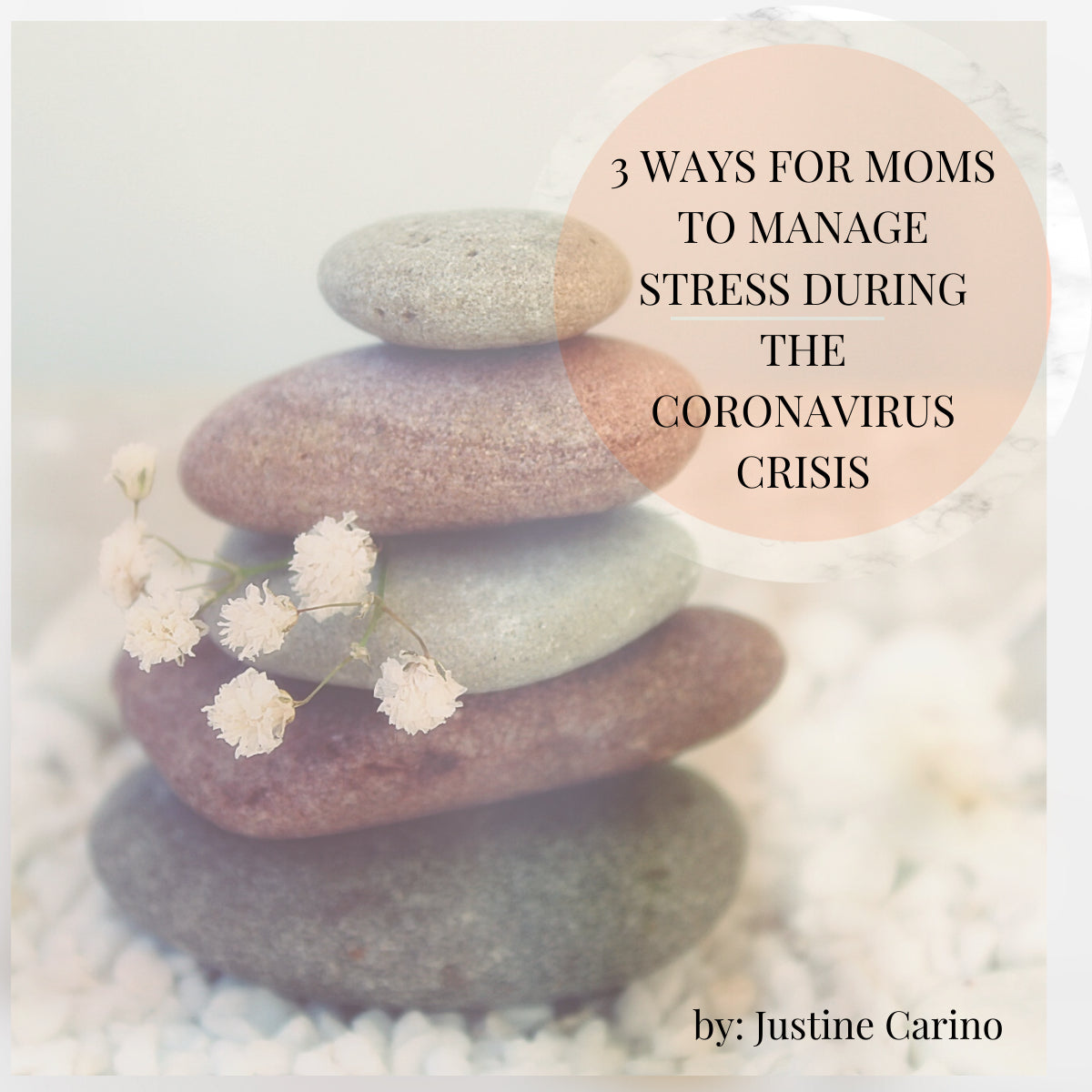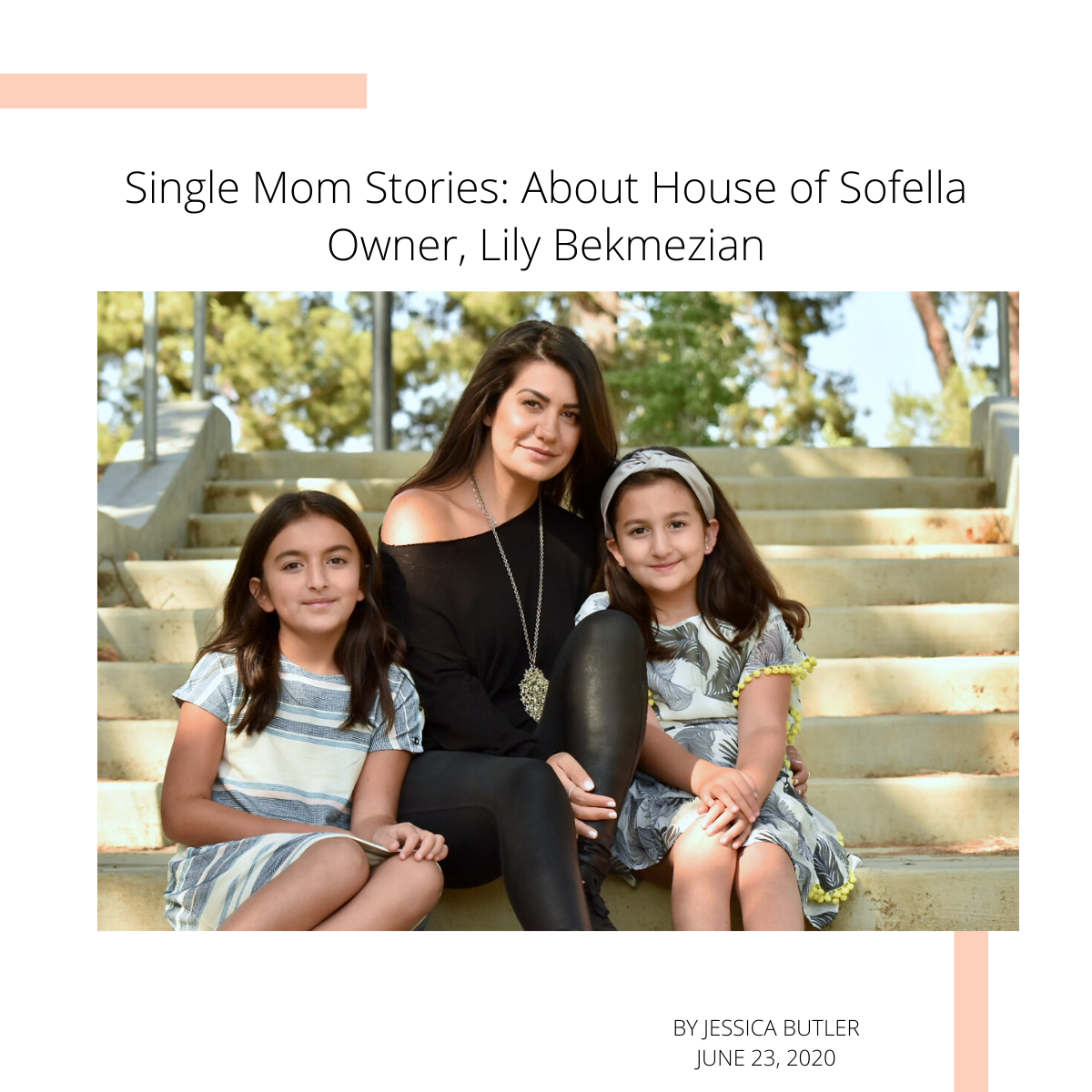
We are living in extremely stressful times right now and the Coronavirus outbreak has drastically changed all of our lives in one way or another. This type of change triggers feelings of anxiety, fear, sadness and uncertainty. There is a wide spectrum of losses that people are going through and grief has become familiar to many. Some of you are facing the worst-case scenarios in which you have tragically lost a loved one to the virus. Others are losing their businesses, incomes and sense of security. Parents have lost “the village” that once helped them juggle the complicated and busy life as a parent. Many moms are trying to balance the extremely difficult task of either working from home or working on the front lines while trying to help their children complete their online schoolwork and save siblings from waging warfare on each other. As moms, managing our own stress levels is crucial for our children and their social/emotional development, so here are some tips for you to try and grip some sort of grip.
1. Maintain the good habits that you had in place before Covid-19.
I let go of so many good habits that I had in place during the first 20 days of New York’s mandatory pause. I had a great routine that made me feel calm, in control and productive. I was frequently at the gym before work, getting up early and eating well. Once the gym closed and everything that was normal changed, I lost motivation to maintain my typical level of exercise and overall wellness. I started sleeping in much later than I should in the mornings and found myself rushing out of bed once our toddler woke up to try and shove my contacts in my eyes and brush my teeth. I was napping a lot on the weekends, staying up way later than my usual bedtime and eating poorly. When I say poorly, I mean that I was literally binging on potato chips and onion dip or nachos and sour cream while lounging in my bed as a nightly routine.
Once I reflected on my poor habits, I realized that it was as if I leaned into the chaos and unpredictability of our environment and created a lack of control for myself. Those behaviors were not reflective of my usual personal choices, but I was being told it was okay to “do what I needed to survive” during this time by some of the articles I was reading and social media posts I was seeing. What I was consuming online validated my choices and gave me an excuse to lose myself for a little bit. I soon came to realize that those bad habits actually made me feel so much worse than I needed to. It took me about a month to realize that I let go of a lot of the habits that I once used to ground myself and took a lot of time to develop over the past year. I can now tell you that since I have returned to my old routines, I feel like myself again. I am eating clean, making sure I get a workout in 3-4 days a week, making sure I go to be early and set my alarm in the morning. I even sat and had coffee alone and showered before anyone else woke up today. The quiet start to my day is exactly what I need to set myself up for the crazy day ahead.
Learning how to create and maintain healthy habits is a big part of the coping skills that I teach my clients in our sessions to help them manage stress, anxiety and depression. Daily rituals can change your whole mood and mindset. When’s a better time to start doing this than now?
2. Find some alone time as a way of practice self-care.
Self-care is extremely important as a parent. I believe that a stressed parent is an ineffective parent. In order to parent effectively, you have to be at a calm baseline.
You need to be able to self-regulate your own emotions in order to teach your children how to regulate their own. If you are not taking care of yourself, even at a minimum, your parenting will suffer. Your frustration tolerance will decrease, and you will say and do things you will later regret. No one is perfect and no one should expect to be a perfect parent, but you will find better solutions to parenting challenges when you are in the right state of mind. Your kids will also pick up on your stress and anxiety and act it out in their own little ways, creating even more tension in your household.
So, I know you are probably thinking that this is impossible to get alone time while practicing social distancing with your husband and baseball team of kids, but as business guru Marie Forleo puts it, “everything is figureoutable.” Your alone time may not look like it once used to be, but we can get creative. Taking a nice long hot shower by yourself with the door locked is a way to start. Going for a run or walk by yourself for 30 minutes to an hour can completely reset your mood and stress levels. Consider getting in your car, blasting your favorite 90’s hip hop Pandora station (is that just me?) and take a drive somewhere by yourself for 45 minutes. You can start to schedule weekly zoom calls with your girlfriends and tell your family it’s mom’s night out and you can’t be bothered for the next 60 minutes. Go relax in a room by yourself to watch your favorite trashy reality TV show once the kids go to sleep. Since the days are getting warmer you can even go sit outside for 30 minutes by yourself. You should sit and talk about all of this with your partner so you are on the same page and also discuss ways he can sculp some alone time for himself as well.
3. Practice having a more helpful mindset.
Our mindset is so important in helping us to get through this challenging time and what you are telling yourself about your current challenges can make you or break you. Getting control over your thinking and outlook will also model to your children a healthy way of coping with life’s unpredictable stressors. One way of working on your mindset is by practicing “radical acceptance.” Radical acceptance is a term we use in Dialectical Behavioral Therapy and it means that you make the choice to accept reality for what it is. This is extremely hard and uncomfortable to do at times, but it is greatly beneficial for us. It does not mean you agree with the reality or like the reality, you just choose to accept it. Denial is a normal part of loss, but denial leads to suffering. It makes you think of solutions that do not exist and once you realize there is no solution, you become angry. When you get angry, you escalate and have trouble thinking clearly. Accepting what your current reality is ends the loop of suffering. You can then recognize what is in your control and what is out of your control and chose to give up what you cannot change. Acceptance of reality leads to changes and creativity on how to handle situations. It’s not what happens to us, it’s how we react to what happens to us.
Another way to try and create a more helpful mindset is to realize when you are “catastrophizing.”Catastrophizing is an irrational way of thinking that causes us to believe that something is far worse than it actually is. It is one of ten “cognitive distortions” that we teach in Cognitive Behavioral Therapy. We have our clients learn these common thinking errors, recognize when they show up in their own minds and teach them how to challenge these unhelpful or ineffective thinking patterns that lead to uncomfortable emotions.Catastrophizing is usually a result of a thinking loop that we become stuck in and believe that the absolute worst-case scenario will become true. It creates anxiety and fear, which then triggers our fight or flight response. Once this system is turned on in your brain, you will not be able to think of an effective solution to the problem at hand. You can only worry about so much at one time and we are often worrying about outcomes that may never even happen. An example of a way to reframe your current thoughts about having to “stay home” could be saying things like “this is inconvenient, and this is challenging, but I can do it.”
Justine Carino is a licensed mental health counselor with a private practice in White Plains, NY. She uses a modernized approach with her clients so therapy can feel more relatable. She specializes in working with teens, young adults, families and pre-marital couples. Justine provides individual, family and couples sessions as well as workshops for parents and teens. Her website is www.carinocounseling.com and can be found on Instagram @_thoughtsfromthecouch_



